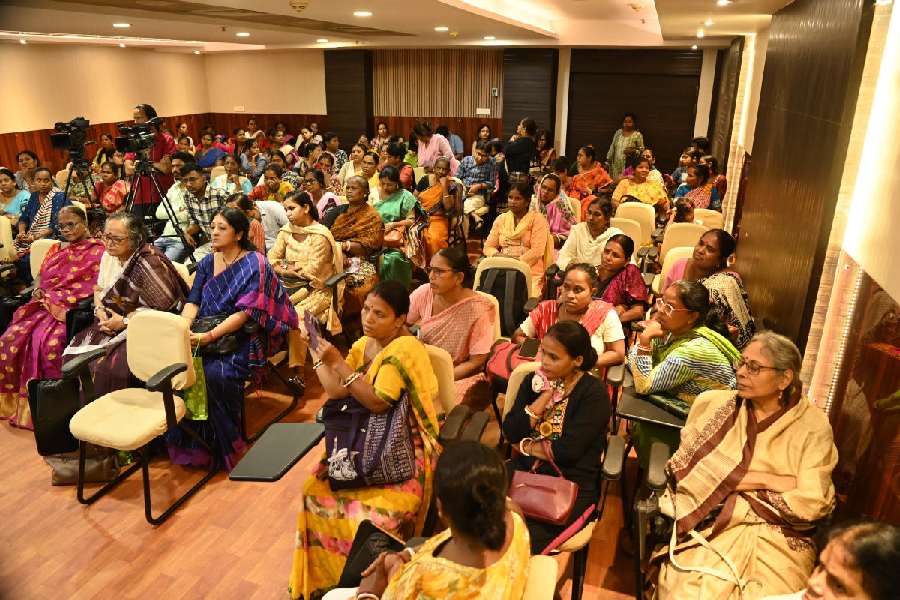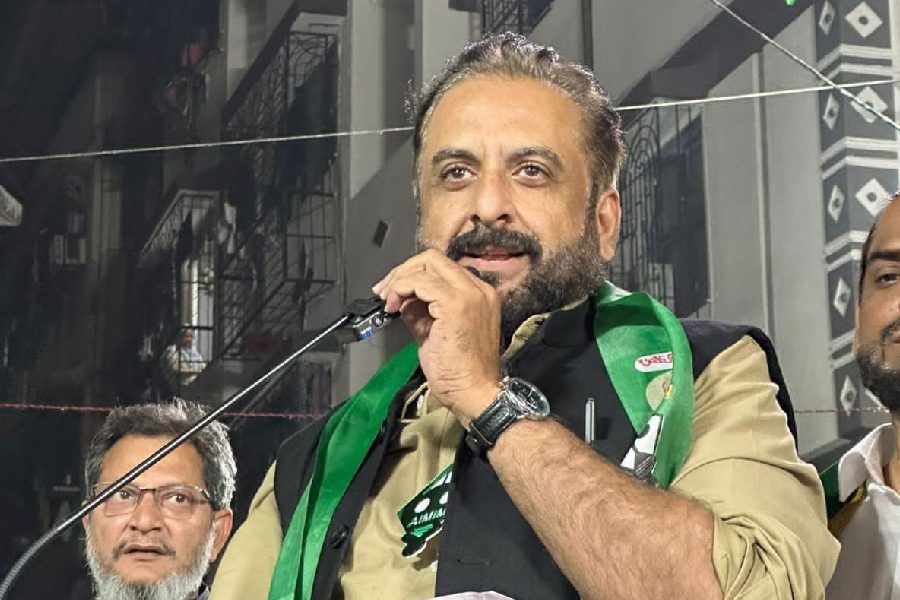Maternity benefits, paid leaves, timely salaries and, above all, dignity at the workplace.
A section of the unorganised workforce demanded what employees of private and government offices take for granted.
The challenges faced by domestic workers — most of them women — came to the fore at a multi-stakeholder dialogue at an auditorium in Moulali Yuva Kendra on Friday.
The consultation brought together domestic workers, employers, trade union representatives and labour law experts to deliberate on a legal framework for domestic work.
The programme was organised by Prayaas Charitable Trust that works with marginalised women. The organisation conducted a recent survey with more than 300 domestic workers in seven districts across Bengal. Some of the key findings:
- Around 75 per cent of the respondents said they skipped work only in case of emergencies; some reported receiving just one leave per month
- Thirteen per cent of the respondents said they were denied access to toilets at the homes where they work
- There is no provision for a written contract between employers and domestic workers
Domestic work in India is one of the largest feminised segments of the informal economy. Official data estimates 4.75 million domestic workers, including three million women. Despite their substantial contribution to the economy and society, domestic workers in India lack comprehensive legal protection.
Since the primary workplace for domestic workers is private households, the government has yet to establish effective monitoring and regulatory mechanisms.
On Friday, the domestic workers were asked about the provisions they wanted in any legal framework designed for them.
“We have to lie to get leave. We want four holidays a month. They should be paid holidays,” said Lakshmi Mandal, one of the domestic workers who was part of a panel discussion.
Rani Barua, another domestic worker on the panel, highlighted the need for maternity benefits. “Our employers get paid maternity leaves and all other benefits. Why should we be deprived?”
Several of her colleagues stressed the need for a creche for kids of domestic workers.
Rights activists, labour-law experts and government officials at the programme talked about the recent Supreme Court judgment in the
Ajay Malik vs State of Uttarakhand case.
In January this year, the apex court, while hearing the case, highlighted the absence of legal safeguards for domestic workers. The court recommended the creation of a dedicated legal framework and directed the Centre to establish an expert committee to explore and propose such a framework. The committee has to submit report within six months.
Kingshuk Sarkar, who has worked for the Bengal government as a labour administrator for two decades and now teaches economics at a management institute in Goa, said for safeguarding the rights of domestic workers, they must be treated as legitimate workers.
“The houses they work at must be treated as workplaces... Domestic helps must be treated as workers,” said Sarkar.










